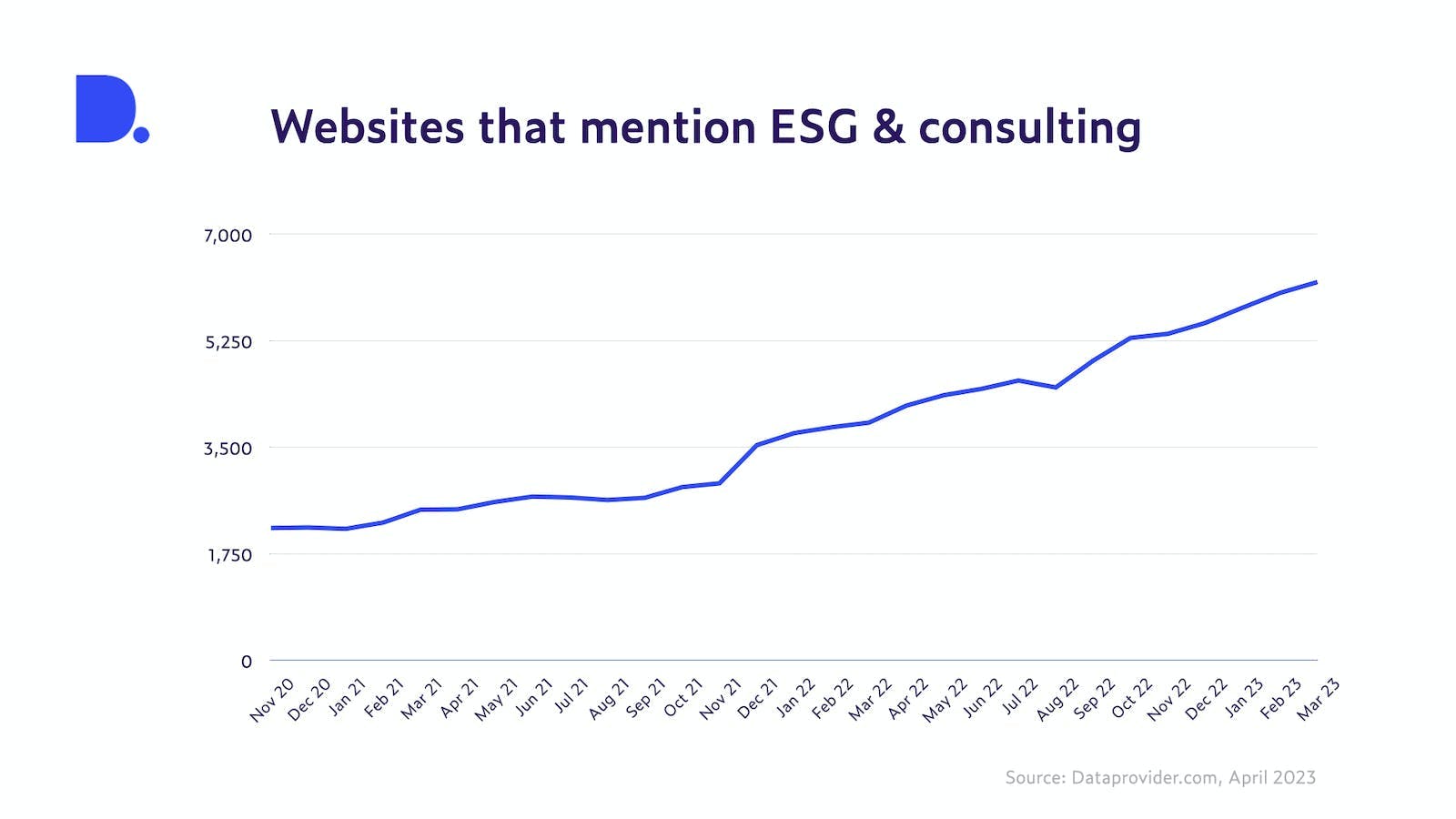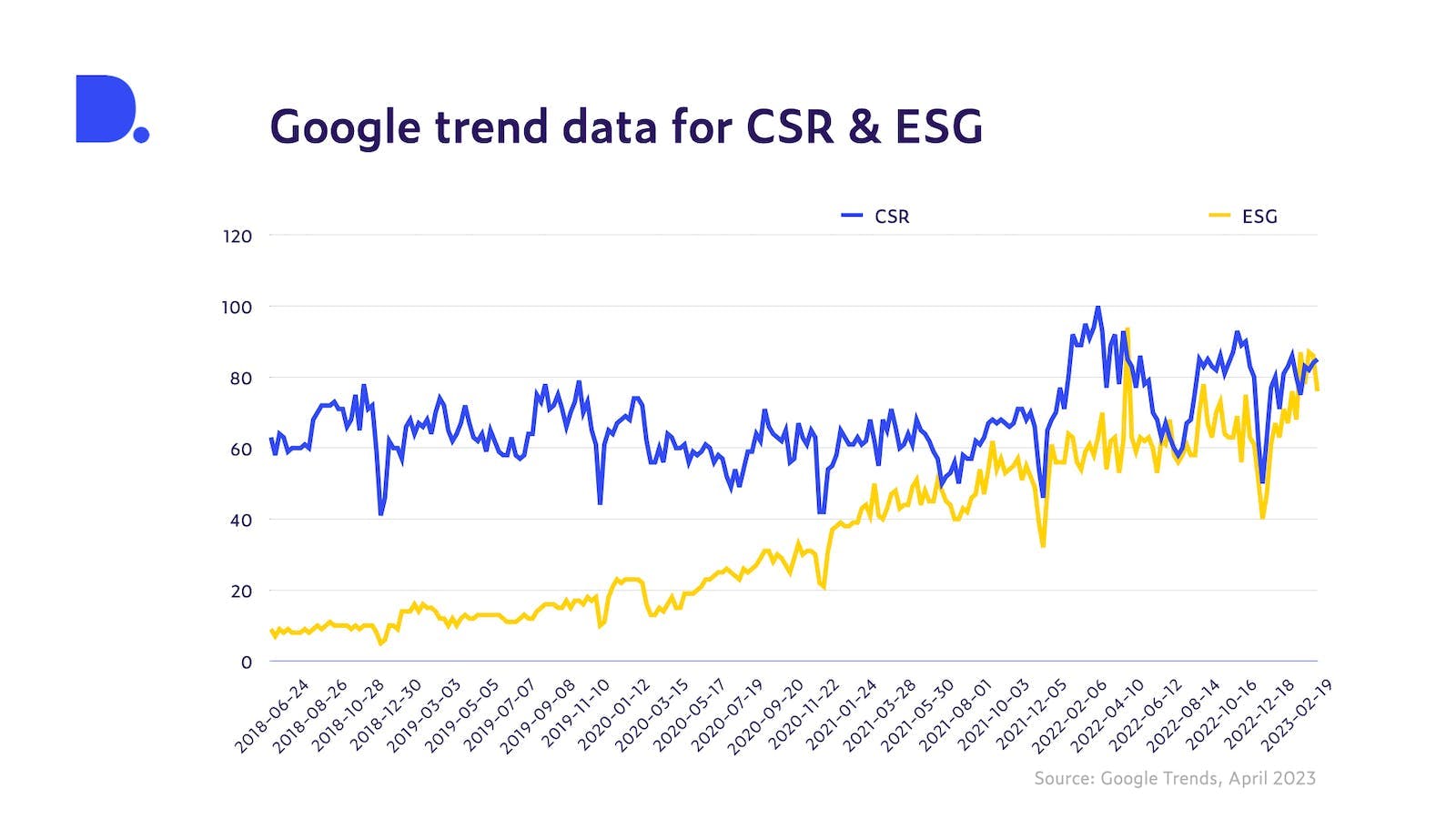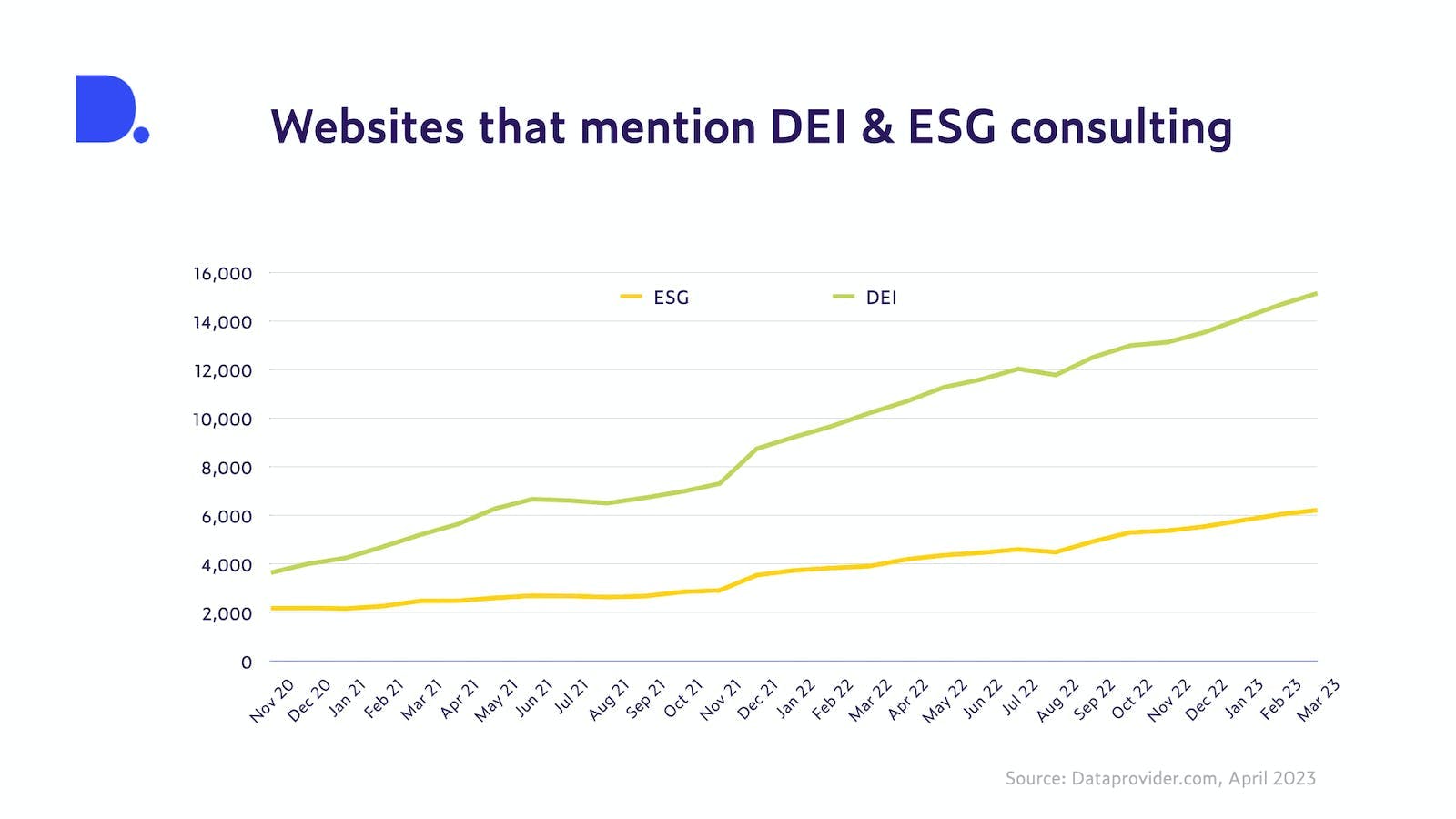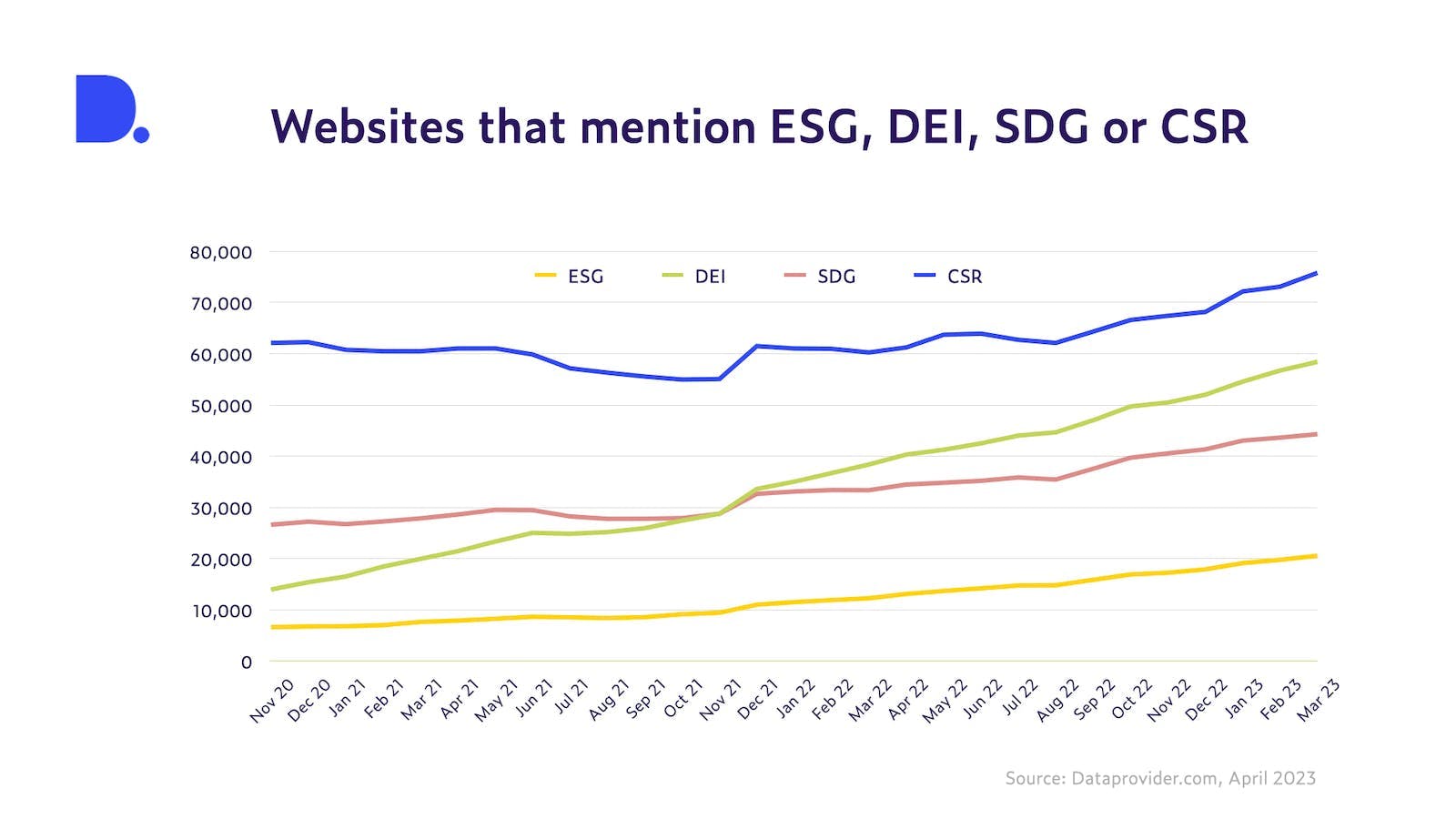Driving change: exploring the importance of ESG, DEI, CSR and SDGs
- over 1 year ago
- 6 min read
Environmental, Social and Governance (ESG) are three key factors that measure a company's sustainability and ethical performance. The environmental aspect of ESG refers to a company's impact on the environment, such as its efforts to reduce greenhouse gas emissions, promote energy efficiency and manage waste. The social aspect of ESG, on the other hand, focuses on a company's impact on society, including diversity and equality in the workplace, fair labor practices and data protection. Lastly, governance deals with a company's leadership and decision-making processes, such as board composition and political contributions.
Diversity, Equity and Inclusion (DEI) are three related but distinct concepts that are becoming increasingly important in the workplace. Diversity refers to the range of different backgrounds, experiences and perspectives that employees bring to the workplace. Equity, on the other hand, refers to the fair and impartial treatment of all employees, regardless of their background or identity. Inclusion, meanwhile, focuses on creating a welcoming and supportive workplace culture that values and respects all employees. Together, DEI initiatives promote a more diverse and inclusive workplace culture, which can lead to better outcomes for employees and the company as a whole.
Corporate Social Responsibility (CSR) refers to voluntary actions taken by companies to improve their social and environmental impact beyond what is required by law or regulations. CSR can take many forms, such as reducing a company's environmental impact, promoting ethical labor practices, supporting local communities, and donating to charitable causes. By engaging in CSR activities, companies can demonstrate their commitment to sustainability and social responsibility, which can enhance their reputation and build stronger relationships with stakeholders.
Lastly, the Sustainable Development Goals (SDGs) are a set of 17 goals adopted by the United Nations in 2015 as part of the 2030 Agenda for Sustainable Development. The SDGs cover a wide range of topics, such as poverty, health, education, gender equality, clean energy and climate action, among others. These goals provide a framework for countries and companies to work together to achieve a more sustainable and equitable world. By aligning their strategies and actions with the SDGs, companies can contribute to a more sustainable future while also creating value for their stakeholders.
Why do these Frameworks matter?
In today's business landscape, there are growing societal pressures for companies to be socially, environmentally and politically aware. This has resulted in companies being forced to create more sustainable and responsible business models that take into account their impact on society and the environment. They must minimize their damage to society and the environment and more importantly, work on making positive contributions to both. The United Nations has referred to climate change as the "most pressing issue of our time," and public expectations are growing. As a result, companies need to take these frameworks into consideration; otherwise, they face backlash. It is becoming increasingly important for companies to be socially and environmentally responsible, and failure to do so can result in reputational damage and loss of customers.
Investors’ perspective
By nature, investors are obliged to understand and identify the metrics which determine the most profitable investments. In recent years, ESG has emerged as potentially one of the most critical frameworks that investors prioritize. Why is that?
The reason boils down to this simple fact: companies that prioritize ESG are more likely to perform better over the long-term. Studies have shown that companies that focus strongly on ESG tend to have better financial performance, lower volatility and a lower risk of bankruptcy. This is because companies that prioritize ESG are often better positioned to identify and manage risks. For instance, companies that fail to manage their environmental impact may face regulatory fines or reputational damage.
Moreover, companies that prioritize ESG are more adaptable to changing market conditions and can react to new opportunities, which explains why investors are increasingly looking to invest in companies that prioritize ESG. An analysis of the web illustrates the importance of ESG, as seen in an increase in consultancies specializing in ESG (see Figure 1).

Which framework matters most on the web?
While ESG factors appear to hold the greatest significance for investors among all frameworks, an analysis of the web reveals that for a long time, CSR has received more attention. An analysis of web searches (see Figure 2) shows that interest in CSR has remained steady over the years and until recently, was substantially greater than that for ESG. ESG is rapidly gaining traction though, and now receives almost as much attention as CSR. One plausible explanation for this phenomenon is the longstanding presence of CSR, which originated in the 1960s and has since garnered considerable attention. In contrast, ESG, with its inception in 2004 and subsequent promotion by the United Nations regarding the Sustainable Development Goals (SDGs) since 2020, is relatively new and still gaining traction.

The amount of Google searches for CSR is a clear indication that this framework is notably more incorporated in the general public’s interest. More generally, pinpointing a public’s preference is difficult, seeing as public sentiments vary and are influenced by events and trends and can vary based on regional, cultural and individual preferences. How public sentiment and interests are influenced by ongoing public discussions, and how this affects what matters, is exemplified by the rise of DEI. While this framework is rather new, DEI has become a driving factor in much public discourse, as the awareness of and importance of promoting diversity, equity and inclusion within organizations and society as a whole grows. Among the four frameworks, we can clearly see that over the past 2.5 years websites that mention DEI have grown the most. It is mentioned considerably more often than ESG but has not yet reached the level of CSR (Figure 3).

DEI initiatives have gained significant traction and are increasingly seen as indispensable factors for innovation, employee engagement and customer loyalty. This emphasis on diversity, equity and inclusion reflects a growing demand for more inclusive and socially just organizations and public systems. As traditional frameworks are questioned and public demands become more uncontestable, investors will have to take frameworks, such as DEI, into closer consideration. The overall increase in engagement with DEI and its related services is evidenced by a comparison of ESG consulting services and DEI consulting services (see Figure 4).

The significant increase in websites referencing DEI consulting can be traced back to a number of factors. One potential explanation points to the increase in services provided by DEI consultants. An analysis of the websites matching the DEI consulting shows that these consultants offer a variety of support, including mental health initiatives, team-building activities and more. In recent years, mental health awareness has experienced a sharp rise, resulting in an increased focus on employee well-being within organizations. DEI consultants recognizing this need have incorporated mental health support as part of their services.
Comparatively, when looking at ESG consulting and environmental issues more generally, such as sustainability or climate change, the availability of professionals who specialize in these areas might be more limited than for DEI. The complex nature of many environmental challenges may require a more specialized skill set that less consultancies offer. Additionally, the SDGs continue to play a consistent role in sustainable investment decisions, as they provide a framework for addressing global challenges and achieving sustainable development.
All four frameworks, ESG, DEI, CSR and SDG, are increasingly referenced on the web. Over the past two years, DEI has seen the sharpest growth online, reflecting the increased awareness and promotion of diversity and inclusion. As the concept of ESG becomes more widely known, it may gain traction in the coming years. However, ESG ratings have also been seen as a gimmick, reflecting a lack of trust in ESG reporting. The fact that there are currently no universally agreed-upon metrics and standardized reporting procedures may hamper ESG from being universally adopted. The ‘deadline’ to accomplish the SDGs is 2030, so it can be expected that the urgency to address these goals increases as we approach the end of the decade. CSR will remain an important topic, especially as corporations need to attract younger generations into the workforce. Millennials and Gen Z, more than any previous generation, prioritize making an impact and being able to see that impact through direct cause and effect. In order to keep an active and motivated workforce, corporations need to communicate and act upon their social responsibility.